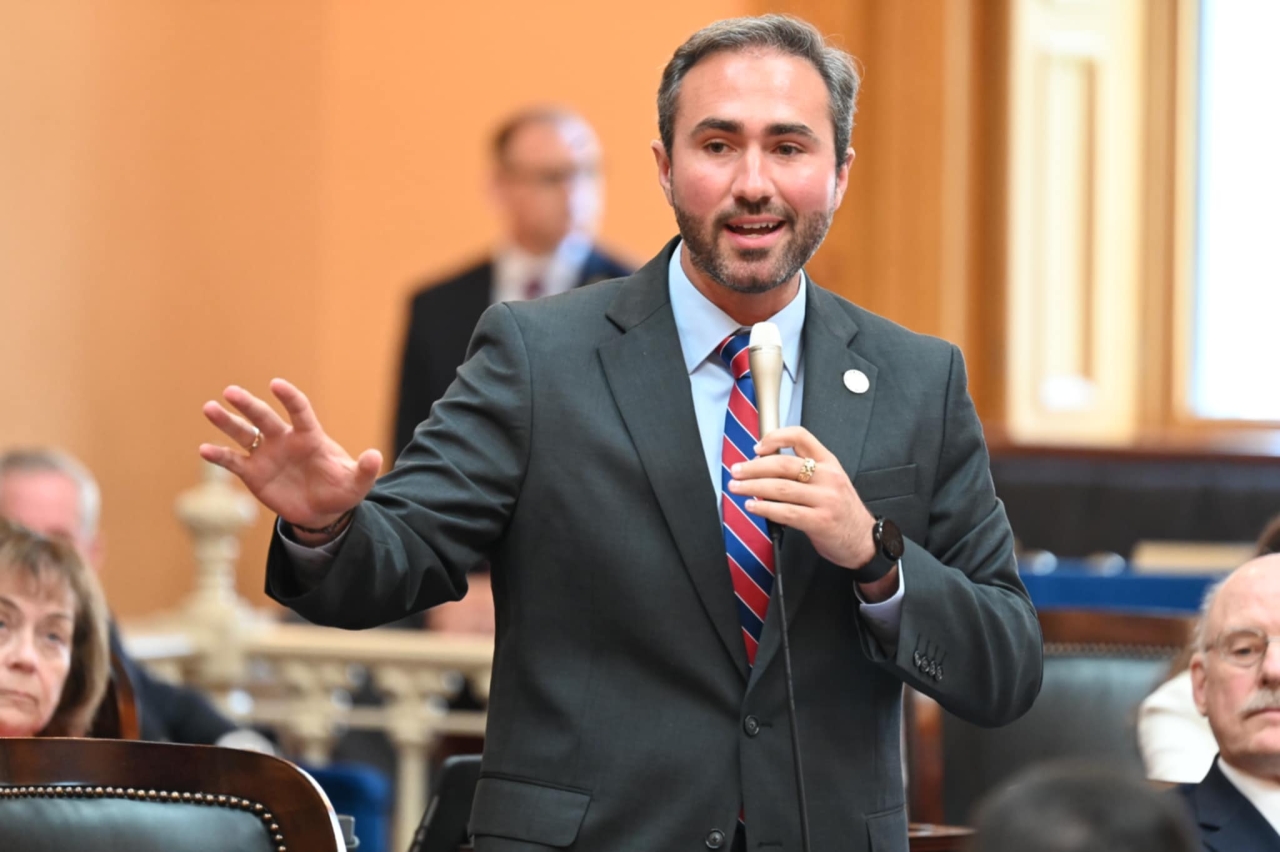Rep. Thomas Votes to Override Veto, Spurring Property Tax Relief for Ohioans

State Representative David Thomas (R-Jefferson) today announced that the Ohio House of Representatives voted to override the Governor’s veto of Item #66, putting into motion the beginning steps for property tax reform through a provision that encourages levy transparency and promotes responsible stewardship of taxpayer dollars on the local level.
The provision was originally included in the recently passed state operating budget, which included a number of actions that aimed to address the unprecedented surge in residents’ property tax burdens across the state through the most pro-taxpayer reforms in nearly 50 years.
The provision makes clarifying changes to ballot language, removes the authority for political subdivisions to charge new replacement property tax levies, and removes the authority for school districts to levy fixed-sum emergency or substitute levies, as well as renewal with an increase levies and combined school district income tax and fixed-sum property tax levies. The language also prohibits a district from requesting a new current expense levy if their prior year carryover balance in general operating funds is greater than 100% of expenses. Thomas mentioned that some schools have used emergency levies to fund their operations for over 20 years and while this does take away a tool from those entities that there are still enough tools in place for voters to fund the schools and local governments if they choose to do so. “The tools that are being taken away are the misleading property tax levies that impact our constituents greatly,” says Thomas, “this veto override puts transparency on the ballot and gives our taxpayers more power to decide what they pay.”
“Ohio homeowners are struggling under the large increases in their property taxes bills that they have been facing over the past several years,” said Thomas. “With today’s override, the House affirmed that it stands on the side of taxpayers by trying to reinsert one of these provisions back in the budget. This will hopefully not be the last provision that we override but it is a step that needed to happen.”
Item 66 makes the following updates:
- Requires Public Meetings and Disclosure: Prohibits a school district from increasing tax revenue by changing (or shifting) the purpose of its inside millage without a public meeting – reducing stealth tax hikes.
- Encourages Levy Transparency: The language encourages levy transparency and treats school districts like other political subdivisions.
- Fiscally Conservative and Responsible: Ensures that school districts do not put new general expense tax levies on the ballot when the school district has over 100% of their expenses in reserves, ensuring fiscal responsibility.
The Ohio House of Representatives voted on the conference committee report for House Bill 96 on June 25th. The budget plan, which allocates funding for state programs and operations for the next two years, included provisions that aimed to protect freedom, family and fiscal responsibility – providing property tax relief for Ohioans, implementing a flat tax rate and ensuring a record amount of state funding for school districts.
On June 30th, Governor Mike DeWine signed the Budget bill, but as part of his approval, vetoed 67 provisions passed by the legislature, including several that were intended to provide homeowners with immediate property tax relief in 2026.
Representative Thomas continues to call on both chambers for swift action to provide the relief necessary for Ohioans. He mentioned during his floor speech that this is a small step. Ohio can’t stop here as one third of counties will continue to see spikes in January. “This is not an issue that is going away and while I am encouraged by the Speaker for bringing this veto override swiftly to a vote, my colleagues and I know that there is still a lot of work to be done, and I will continue to work with them to advocate for our taxpayers.” Now that the House has taken action, in order for the provision to be enacted into the law, the Senate must also override the Governor’s veto.







